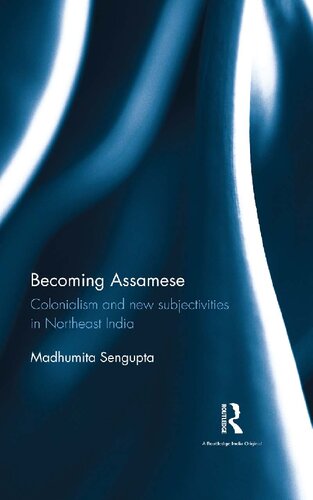

Most ebook files are in PDF format, so you can easily read them using various software such as Foxit Reader or directly on the Google Chrome browser.
Some ebook files are released by publishers in other formats such as .awz, .mobi, .epub, .fb2, etc. You may need to install specific software to read these formats on mobile/PC, such as Calibre.
Please read the tutorial at this link: https://ebookbell.com/faq
We offer FREE conversion to the popular formats you request; however, this may take some time. Therefore, right after payment, please email us, and we will try to provide the service as quickly as possible.
For some exceptional file formats or broken links (if any), please refrain from opening any disputes. Instead, email us first, and we will try to assist within a maximum of 6 hours.
EbookBell Team

4.8
74 reviewsThis book explores the making of colonial Northeast India and offers a new perspective to the study of the Assamese identity in the nineteenth century as a distinctly nineteenth-century cultural phenomenon, not confined to linguistic parameters alone. It studies crucial markers of the self — history, customs, food, dress, new religious beliefs — and symbols considered desirable by the provincial middle class and the way these fitted in with the latter’s nationalist subjectivities in the face of an emphatic Bengali cultural nationalism. The author shows how colonialism was intrinsically linked to the assertion of middle class intelligentsia in the region and was instrumental in eroding the essential malleability of societal processes nurtured by the Ahom state.
Rich with fresh research data, this book will be useful to scholars and researchers of history, political science, area studies, and to anyone interested in understanding Northeast India.